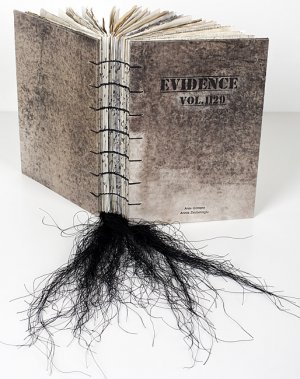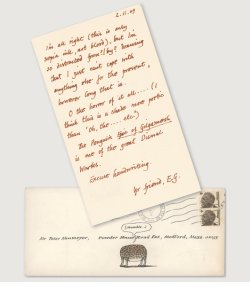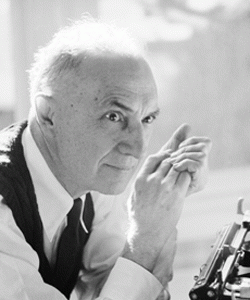Olympic Poetry, Newly Digitized Hemingway Ephemera, and More
Slam poet and cultural icon Maggie Estep has died; Kwame Dawes writes Olympics-inspired poetry; Apple loses recent appeal in e-book case; and other news.
Jump to navigation Skip to content
Slam poet and cultural icon Maggie Estep has died; Kwame Dawes writes Olympics-inspired poetry; Apple loses recent appeal in e-book case; and other news.
Amazon executives have testified in the Department of Justice e-book pricing lawsuit; In Norway, the Bible is selling more copies than E. L. James; Justin Alvarez examines the state of the modern library; and other news.

Melville House wonders when publishers will speak out about Amazon; New York City's Algonquin Hotel announced that when it reopens this spring after a renovation, the famed Oak Room will be gone; E. B. White answers a charge levied by the ASPCA; and more

In this issue we offer a look at a note written in 1969 from Edward Gorey to Peter F. Neumeyer, included in the book Floating Worlds: The Letters of Edward Gorey and Peter F. Neumeyer, published by Pomegranate this month.
British poet and novelist Thomas Hardy, author of Tess of the D’Urbervilles and The Return of the Native, among other literary classics, wanted his personal papers burned after his death. In 1928, a bonfire was dutifully lit but not everything was consigned to the flames. Hardy’s second wife, Florence, saved at least 12 notebooks filled with information and sources on which the author based his later works of fiction. Thomas Hardy’s ‘Facts’ Notebook, edited by William Greenslade and released this month by Ashgate Publishing, is only the most recent to appear.

The published correspondence of famous poets often accounts for more real estate on bookstore shelves than their books of poems. For academic scholars who spend their weekends in the special-collections rooms of libraries, the value of these books is obvious. But what are they worth to the general reader, or the practicing poet?